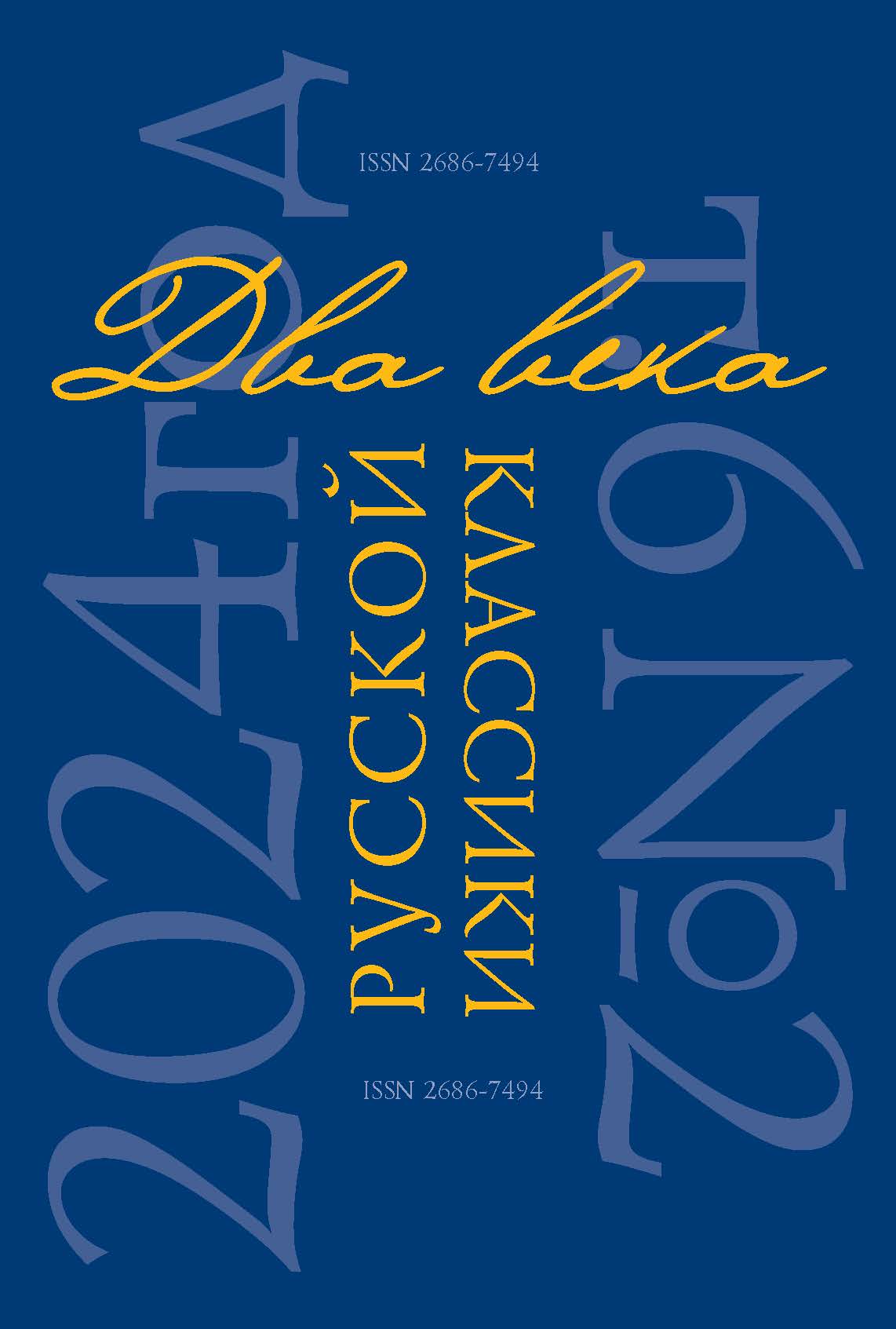Abstract: The article is devoted to the functional role of nature images in the formation of the imaginary structure of Russian odic poetry of the 18th – early 19th centuries. Examples are taken from the odic poetry of Mikhail Lomonosov, Vasily Trediakovsky, Alexander Sumarokov, Mikhail Kheraskov, Gavrila Derzhavin, Dmitry Khvostov. An attempt was undertaken to answer two questions: the place nature images occupied in odic poetry in the era of its pride and, secondly, the possibility to find in the poetry of classicism, despite the condescending attitude towards it that developed later in the history of Russian literature, something that constituted an organic part of the Russian classics of the 19th and 20th centuries. The functional role of nature images in the odic genre is shown, which, as it seemed, by definition is alien to natural themes, being organically connected with the pathos of civic consciousness and the appeal to the themes of heroism, great personalities, and historical events. However, as it turns out in a number of cases, the very objects of nature evoke the poet's admiration as an impressive work of the Creator, in others, nature is a background that in a certain way enhances the impression of the very historical events that constitute the subject of odic poetry. The conclusion is made about a certain continuity in the depiction of nature – from odic poetry to Russian lyric poetry and prose of the 19th and 20th centuries.
References
Belinskii, V. G. Sobranie sochinenii: v 3 t. [Collected Works: in 3 vols.]. Moscow, OGIZ GIHL Publ., 1948. (In Russ.)
Bukharkin, P. E. “Ritoricheskoe smysloobrazovanie v ‘Vechernem razmyshlenii o Bozhiem velichestve pri sluchae velikogo severnogo siianiia’ M. V. Lomonosova. Mezhdu odnoznachnost'iu logiki i polisemiei iazyka” [“Rhetorical Sense-making in ‘Evening Meditation on the Majesty of God on the Occasion of the Great Northern Lights’ by M. V. Lomonosov. Between Unambiguity of Logic and Polysemy of Language”]. XVIII vek [18th Century], vol. 24. St. Petersburg, Nauka Publ., 2006, pp. 35–56 (In Russ.)
Vinitskii, I. Ju. Graf Sardinskii: Dmitrii Hvostov i russkaia kul'tura [Count of Sardinia: Dmitry Khvostov and Russian Culture]. Moscow, NLO Publ., 2016. 353 p. (In Russ.)
Gasparov, M. L. “Stil' Lomonosova i stil' Sumarokova — nekotorye korrektivy” [“Style of Lomonosov and Style of Sumarokov — Some Corrections”]. Novoe literaturnoe obozrenie, no. 1 (59), 2003, pp. 235–243 (In Russ.)
Liban, N. I. Russkaia literatura: Lektsii-ocherki [Russian Literature. Lectures-Essays]. Moscow, Progress-Pleiada Publ., 2014. 584 p. (In Russ.)
Lotman, Iu. M. Besedy o russkoi kul'ture. Byt i traditsii russkogo dvorianstva (XVIII – nachalo XIX veka) [Conversations about Russian Culture. Life and Traditions of the Russian Nobility (18th – Early 19th Century)]. St. Petersburg, Iskusstvo-SPB Publ., 1994. 399 p. (In Russ.)
Makhov, A. E. “Eto veseloe imia Hvostov” [“This Funny Name Khvostov”]. Graf Dmitrii Ivanovich Hvostov. Sochineniia [Count Dmitry Ivanovich Khvostov. Works]. Moscow, INTRADA Publ., 1999. 224 p. (In Russ.)
Ostolopov, N. F. Kliuch k sochineniiam Derzhavina, s kratkim opisaniem zhizni sego znamenitogo poeta [A Key to Derzhavin’s Works, with a Brief Life Description of the Famous Poet]. St. Petersburg, Tipografiia I. Glazunova Publ., 1822. 95 p. (In Russ.)
Tynyanov, Yu. N. “Arkhaisty i Pushkin” [“Archaists and Pushkin”]. Pushkin i ego sovremenniki [Pushkin and His Contemporaries]. Moscow, Nauka Publ., 1968, pp. 23–121. (In Russ.)









